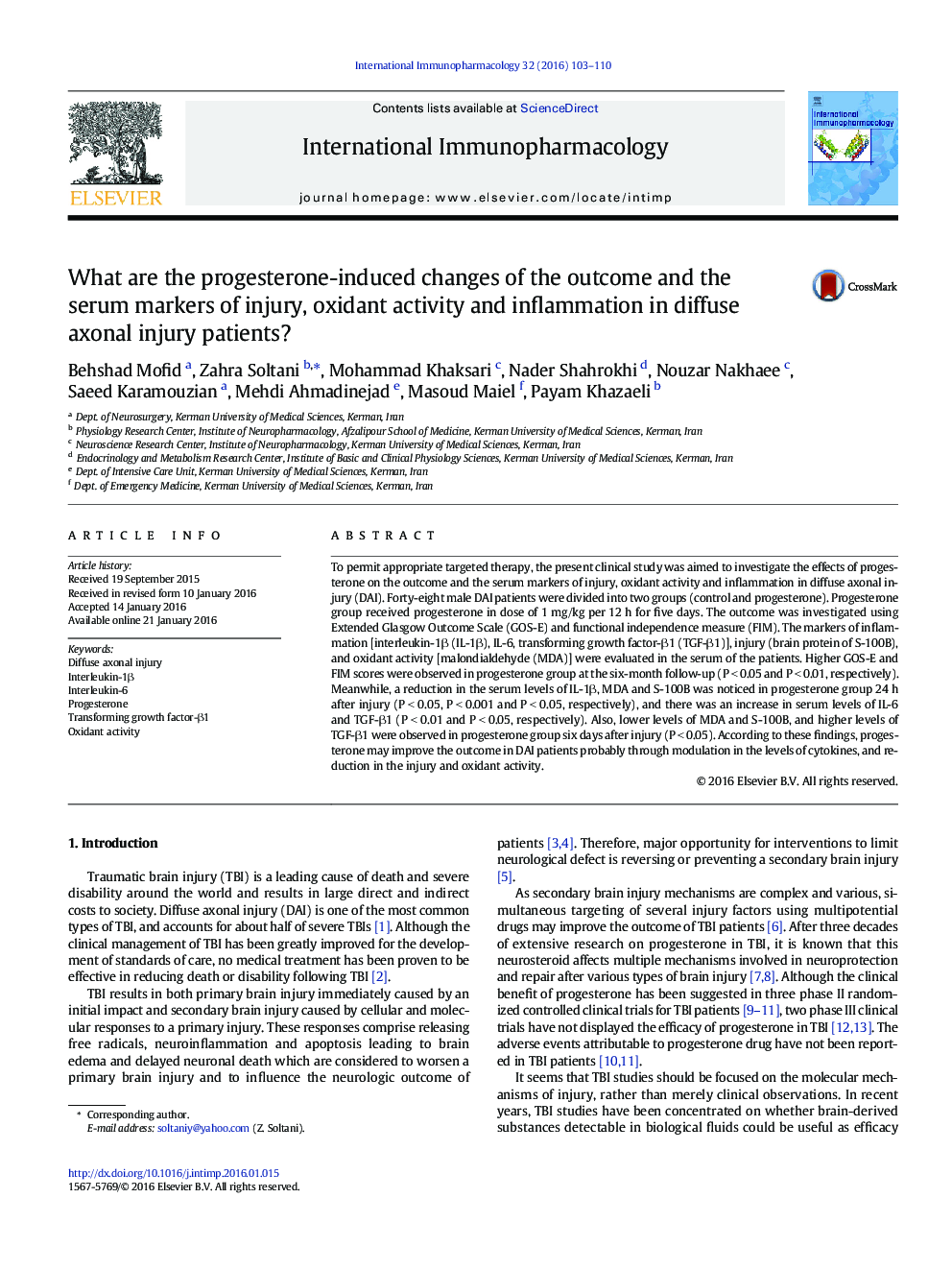| Article ID | Journal | Published Year | Pages | File Type |
|---|---|---|---|---|
| 5831860 | International Immunopharmacology | 2016 | 8 Pages |
â¢Progesterone may be neuroprotective because of its antiinflammatory effect.â¢Neuroprotection by progesterone may be mediated by its antioxidant property.â¢Oxidative stress and inflammation may function in pathogenesis of axonal injury.
To permit appropriate targeted therapy, the present clinical study was aimed to investigate the effects of progesterone on the outcome and the serum markers of injury, oxidant activity and inflammation in diffuse axonal injury (DAI). Forty-eight male DAI patients were divided into two groups (control and progesterone). Progesterone group received progesterone in dose of 1 mg/kg per 12 h for five days. The outcome was investigated using Extended Glasgow Outcome Scale (GOS-E) and functional independence measure (FIM). The markers of inflammation [interleukin-1β (IL-1β), IL-6, transforming growth factor-β1 (TGF-β1)], injury (brain protein of S-100B), and oxidant activity [malondialdehyde (MDA)] were evaluated in the serum of the patients. Higher GOS-E and FIM scores were observed in progesterone group at the six-month follow-up (P < 0.05 and P < 0.01, respectively). Meanwhile, a reduction in the serum levels of IL-1β, MDA and S-100B was noticed in progesterone group 24 h after injury (P < 0.05, P < 0.001 and P < 0.05, respectively), and there was an increase in serum levels of IL-6 and TGF-β1 (P < 0.01 and P < 0.05, respectively). Also, lower levels of MDA and S-100B, and higher levels of TGF-β1 were observed in progesterone group six days after injury (P < 0.05). According to these findings, progesterone may improve the outcome in DAI patients probably through modulation in the levels of cytokines, and reduction in the injury and oxidant activity.
